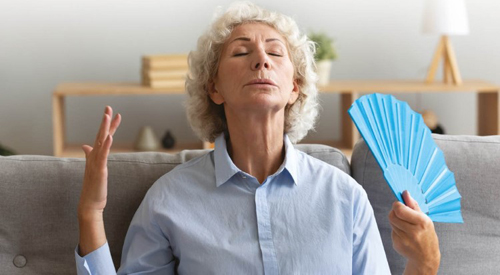Beat the heat

WE all know that aging has various impacts on our bodies joint pain, arthritis, osteoporosis, cataracts, hearing loss… the list goes on.
One thing that is not so well known is that as we get older our ability to deal with heat and hot weather is negatively impacted too.
Heat-related illnesses are collectively called hyperthermia, which can include heat stroke, heat oedema (swelling), heat syncope (sudden dizziness), heat cramps and heat exhaustion.
Believe it or not, extreme heat is far more dangerous (for everyone) than extreme cold. It is far easier to stay warm and to increase body temperature than it is to lower it when it rises too high. A rise in core body temperature can lead to heat stroke.
If you suspect you or someone else has heat stroke, call an ambulance.
Heat stroke symptoms
• Nausea and feeling unwell after 30 minutes in the shade and drinking plenty of water.
• Not sweating.
• Feeling confused.
• Fitting and seizures.
• Loss of consciousness.
Prevention is better than cure.
• Stay out of the sun. Being indoors isn’t always an option either in severe heat as air-conditioned homes are a rarity in the UK.
• The best way to keep your house cool without an AC is to open the windows and close the curtains (where the sun is shining in), leaving a gap for the air to circulate.
• If you have a cool and shady spot in the house or garden that’s the place to be. Any chore that involves physical labour, such as gardening, should be completed before it gets too hot.
• While noon is, in theory, the hottest part of the day, afternoons and even early evening can be overbearingly hot, so take it easy.
• Wear light-coloured loose clothing in natural fabrics and be sure to stay hydrated. Even if you don’t feel thirsty be sure to keep drinking water but avoid alcohol and caffeine.
• If all else fails, do as the Americans do and go to see a film in a nice, cool airconditioned cinema.




.jpg)